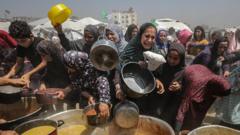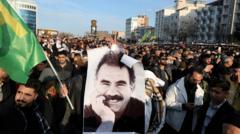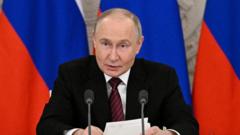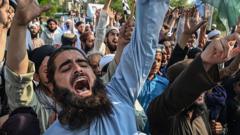**As the PKK announces its decision to disband after decades of conflict, mixed reactions emerge from the Kurdish community, with echoes of skepticism amid cautious optimism.**
**Hope and Skepticism Greet PKK's Historic Disbandment Decision**
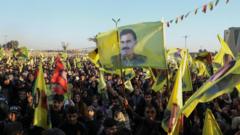
**Hope and Skepticism Greet PKK's Historic Disbandment Decision**
**Kurdish community weighs possibilities of peace against a backdrop of past betrayals.**
After four decades of conflict that has resulted in around 40,000 deaths without achieving a Kurdish homeland, the Kurdistan Workers Party (PKK) has made a historic decision to end its armed struggle against the Turkish state. Taken as a significant milestone, this announcement signals the potential conclusion of one of the world's longest-running conflicts, a moment that holds implications for Turkey's Kurdish population and surrounding nations affected by the strife.
In February, Abdullah Ocalan, the imprisoned leader of the PKK, called for disarmament, but the response of the Turkish government remains ambiguous, leaving many wondering what assurances or concessions, if any, will follow. “They [the government] have been tricking us for thousands of years,” remarked Necmettin Bilmez, a 65-year-old driver, while seeking refuge from a sudden hailstorm in Diyarbakir, a largely Kurdish city. “When I get an ID card in my pocket saying I am Kurdish, I will believe everything will be solved. Otherwise, I don’t believe in this.”
Yet another local elder, 80-year-old Mehmet Ek, expressed support for any cessation of violence, lamenting the long wait for peace, “This has come late,” he stated. “I wish it had happened ten years ago. But anyone who will stop this bloodshed, I salute them.”
Diyarbakir, often considered the Kurdish heartland, bears the scars of the decades-long conflict, evident in the remnants of battles fought within its boundaries. Among the locals, there is a shared sense of despondency over the losses experienced by both sides. Ibrahim Nazlican, 63, articulated this sentiment, emphasizing the futility of the longstanding fight: “No one has achieved anything. There are no winners.”
Many residents are now looking towards potential peace agreements, with calls for the release of Abdullah Ocalan, who remains in custody since 1999. Some followers believe his freedom is crucial for any meaningful resolution. "We want peace," said Menice, 47, who lost family members to the conflict, “but if our leader is not free, we will never be free.” Her hope for a peaceful future is bittersweet, underlined by personal losses—a poignant reminder of the conflict’s toll.
Despite the uncertainty, some observers remain cautiously optimistic about this development. President Erdogan's ruling party acknowledged the PKK's disbandment as a momentous step towards eliminating terror. Political dynamics may compel both sides to seek a resolution, with Erdogan's upcoming election aspirations in 2028 hinting at the need for the support of pro-Kurdish political factions.
Yet challenges remain. The PKK, facing heavy military pressure and regional shifts, must engage thoughtfully if peace is to be realized. As Kurdish voices express a blend of hope and skepticism, the road ahead is fraught with complexities that will demand careful negotiation and trust-building. Perhaps the end of this chapter in Turkey's tumultuous history might finally yield the peace that both Turks and Kurds alike long for.


